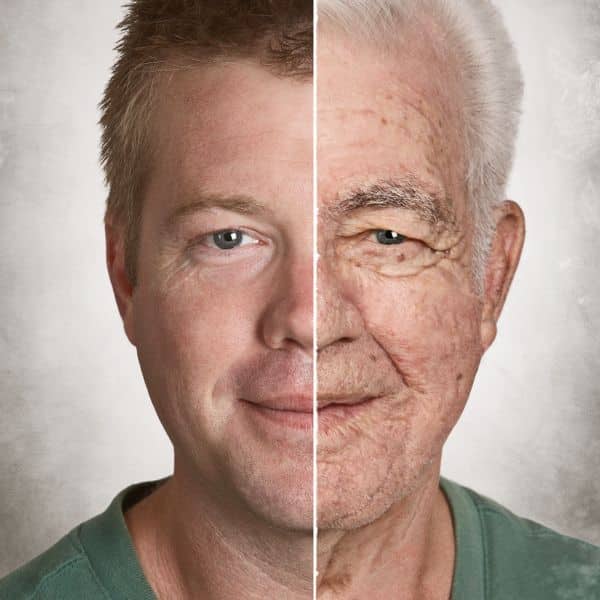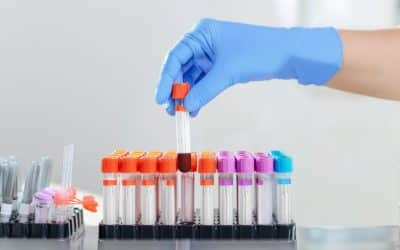
Likely, the biggest breakthrough in medicine of all time will be the reversal of the aging process.
The reasons for this are logical and obvious, but are still all too little known, even by the medical community and in the field of biotechnology and pharma.
Medicine, and human health in general, has been notoriously difficult to disrupt. Progress is very slow, and most therapies treat symptoms of diseases, not the root causes. Medicine pays little attention to prevention, while still adhering to outdated notions and approaches in this regard.
In other words, medicine, and our health, needs disruption. This disruption is coming, in the form of fascinating new technologies, like gene editing, transcriptomic drugs, novel gene therapies, AI, improved cell therapies, organ printing, and so on.
However, the biggest disruption will likely come from reversing aging.
There are several reasons why making people younger again will transform medicine, our health and our society as a whole.
The best way to stay healthy for as long as possible
The first reason is that reversing aging would likely be the most powerful and effective way to prevent and treat aging-related diseases.
After all, aging is the main and most important cause of aging-related diseases like heart disease, cancer, Alzheimer’s, osteoarthritis, macular degeneration, osteoporosis, aging-related decline in kidney function, and so on.
The same processes that cause these diseases cause aging. By targeting aging, we target the root causes of these diseases. These aging processes are, for example, epigenetic changes, protein accumulation, mitochondrial dysfunction, a decline in DNA repair, an increase in senescent cells, and so on.
Unfortunately, how these processes cause aging is hardly taught at medical school. Many medical doctors still think that aging and aging-related diseases are two distinct processes.
They consider aging a “natural” process, while heart disease is caused by “disease processes”, like accumulation of cholesterol-filled immune cells in the blood vessel wall. However, these disease processes are caused by deeper-rooted processes, which encompass aging itself.
In a similar unfortunate vein, governments spend billions of dollars to “cure” individual
aging-related diseases, but hardly invest any money into addressing the root cause of all these diseases: aging. This is not a good way to spend valuable tax money.
Even if we could suddenly cure all heart disease, people would only live 2.8 years longer, given they will then die of another aging-related disease, like Alzheimer’s, cancer or pneumonia, due to the aging-related decline of the immune system.
Not just reducing sickness, but bringing lost health back
A second reason why reversing aging will change the medical field is because it really will be medicine: not only making people better, but helping to achieve their best health possible.
Instead of just treating diseases, or slowing down the inexorable decline of our bodies, we would strive for optimal health.
With aging, one can still be considered “healthy”, while nonetheless tiring more easily, hearing and seeing less well, muscles withering away, and skin becoming increasingly thin and wrinkly. We have trouble with balance, have foggy memories, and we suffer from many other ailments that if they would suddenly happen to a young person, would be labeled as a disease.
Yet, these ailments are currently considered to be perfectly normal, just as long as you are old.
If we can partially reverse aging, we could bring people back to their full metabolic and physiological potential, as they had when they were younger. This would be the epitome of medicine: achieving the best health possible, not just the reduced “health” we take for granted when we get older.
Hitting 1000 birds with one stone
This brings us to the third reason to reverse aging: it’s truly a comprehensive approach.
There are many aging diseases. Trying to address each one individually has proven to be very difficult. However, by shifting our focus upstream and addressing the root cause – aging – you can treat many different aging diseases not only simultaneously, but also more effectively.
If you improve the epigenome, mitochondrial dysfunction, protein homeostasis, and DNA damage, you will be much better able to treat heart disease, Alzheimer’s disease, and a multitude of other diseases in one fell swoop.
Approaching multifactorial diseases from multiple angles
The fourth reason to reverse aging comes down to pragmatism: it’s a far-cry from the reductionistic, oversimplified approach we currently take to “treat” diseases.
Most pharmaceutical companies still adhere to the old dogma “one drug for one target for one disease”. However, aging-related diseases like heart disease or Alzheimer’s are very complex diseases, caused by many different processes, most of which are rooted in aging.
For example, the accumulation of amyloid or tau protein in Alzheimer’s disease is just one of the many things that go awry in the brain.
Focusing on only a tiny facet of complex diseases, as most drugs and therapies are doing, is likely to have little impact.
Can we reverse aging?
We can. Studies in the last few years have shown that it’s not only possible to slow down aging, but to reverse aging. This means making organisms younger again.
In one study, old mice were epigenetically reprogrammed using Yamanaka factors. The organs and muscles of these reprogrammed mice could regenerate better again, and various hallmarks of aging were improved (R).
In another study, senescent cells were destroyed in old mice. These old mice became younger again: their gray fur with bald spots became shiny black, and the mice looked and behaved as young mice again. Their fitness, hair density and kidney function was restored (R).
Various other studies show that it’s possible to partially reverse aging, by using gene therapies, epigenetic reprogramming, senolytics (which clear senescent cells), heterochronic parabiosis (in which old mice are exposed to blood constituents of younger mice, seemingly rejuvenating them), and other approaches.
It feels like the beginning of the internet
These cited studies are all high tech approaches that are currently being further developed for humans. We currently see a rise of biotechnology companies that want to address aging itself, instead of individual aging-diseases. More and more investors are realizing the potential of treating aging itself, and we see a huge increase in investment into longevity companies.
This pace of longevity allocations is and will continue to accelerate. Bank of America predicts that the longevity industry will be the biggest industry of all time. Nearly everyone would like to have a long, healthy life, staying biologically young for as long as possible.
Reversing aging, the simple way
I’ve mentioned sophisticated new biotechnologies to reverse aging. Interestingly, it is also possible to reverse aging in a more modest, but still important way.
Recent studies have shown that quite simple lifestyle interventions could also reverse aging, making you age backwards by a little.
For example, studies have shown that a healthy diet, exercising more, or even certain ingredients that can be supplemented, could reverse your biological age, as measured with epigenetic clocks (R,R,R).
Epigenetic clocks measure your biological age, namely your mortality and disease risk. In other words, they can measure how old you really are.
It’s part of human nature and a moral imperative
Reversing aging will be our best approach to keep people as healthy and productive for as long as possible. It’s our best way to treat multiple aging-related diseases at the same time, and to prevent and stave off these diseases. Addressing aging will reduce frailty, infirmity and suffering as a whole, ranging from reduced mobility; to an inexorable decline in vision, hearing and taste; to Alzheimer’s and stroke.
The side effect of this approach – postponement of death – is something we will have to deal with as a society. In the past hundreds of years, lifespan has doubled. Now, with new biotechnologies and lifestyle optimization, it will double again.
It will be up to society to decide how we will manage this (r)evolution, and how to reconcile our innate drive for self-preservation and youth with the health of our planet and other species – which, besides some immortal jellyfish and polyps, still age and die.




